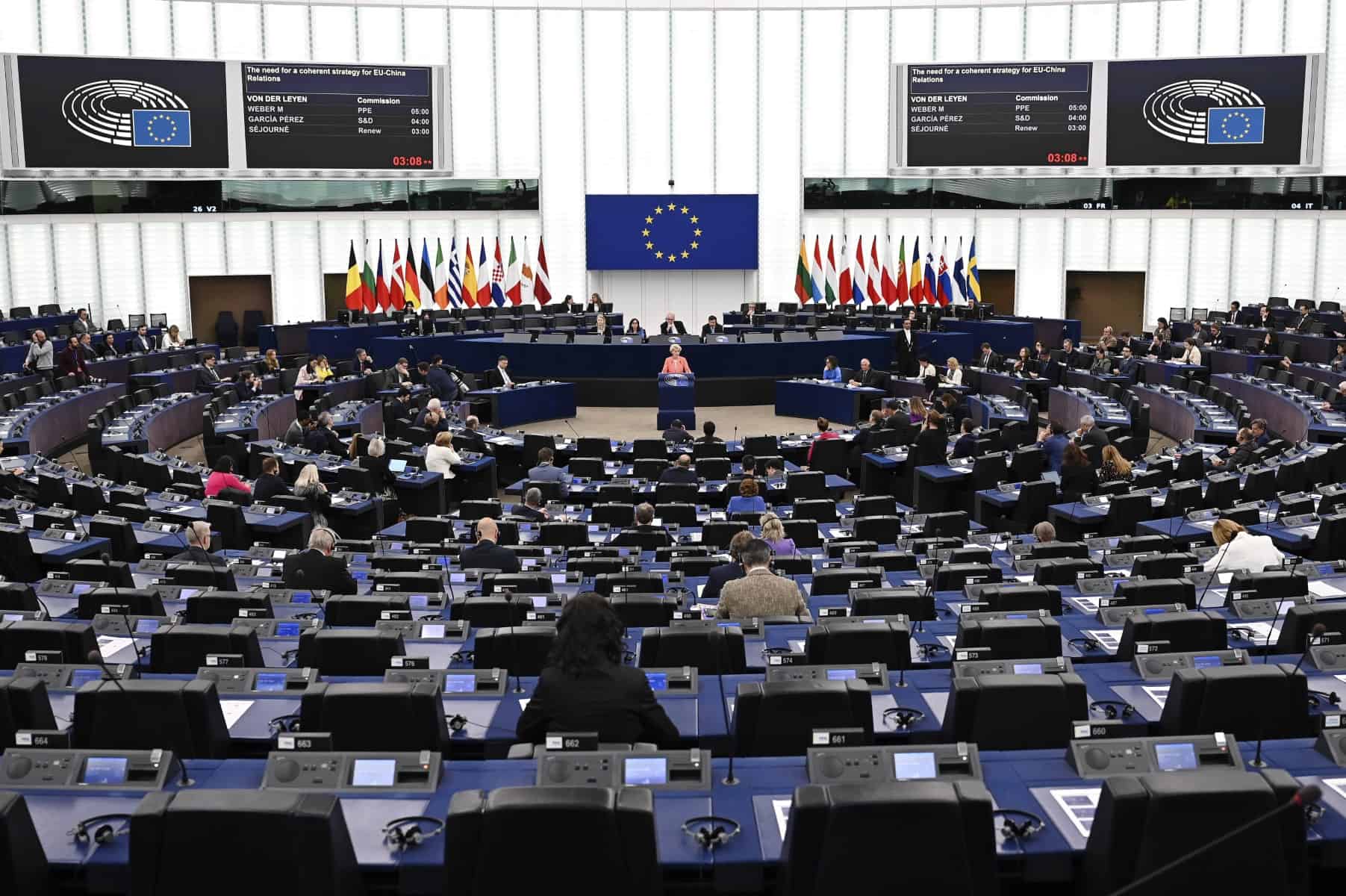STRASBOURG, FRANCE – The European Parliament approved the world’s first comprehensive rules to regulate the “Wild West” world of cryptocurrencies on Thursday, hoping to protect investors against abuse and manipulation.
EU member states have already backed the legislation covering cryptoassets, which include cryptocurrencies such as bitcoin and ethereum and other tradable tokens whose value is secured using blockchain technology, such as NFTs.
The rules, now approved by a large majority of European lawmakers, hope to whip into shape an industry that has been beset by scandals and failures.
One of the most recent cryptocurrency exchange failures came in November when the FTX platform and its sister trading house Alameda Research went bankrupt, dissolving a virtual trading business that at one point had a market value of $32 billion.
The EU commissioner for financial services, Mairead McGuinness, said during a parliamentary debate on Wednesday that the rules would have regulated FTX’s activities and perhaps prevented its collapse at great cost to some investors.
Under the regulation known as Markets in Crypto Assets (MiCA), cryptoasset service providers (CASPs) must protect customers’ digital wallets and will be liable if they lose investors’ cryptoassets.
“We believe that had FTX, for example, been captured under EU jurisdiction, many of its practices would not have been permissible under MiCA,” McGuinness said in Strasbourg.
Large providers will also have to disclose their energy consumption as part of the EU’s efforts to reduce cryptocurrencies’ high carbon footprint.
A second regulation on fund transfers will lead to greater oversight of cryptoassets trades, bringing it more closely into line with practices traditional finance.
The EU says this will make it harder for criminals to use cryptocurrencies for illegal activity such as money laundering.
The regulations “mark the end of the Wild West era for the unregulated world of cryptoassets”, Ernest Urtasun, one of the EU lawmakers spearheading the legislation through parliament, said during the debate.
“For over a decade, the lack of regulation has resulted in massive losses to many first-time investors and provided a safe haven for fraudsters and international criminal networks,” he added.
Creating safer environment
Some have, however, criticized the draft legislation for not going far enough.
“In line with the principle of proportionality, significant CASPs should be subject to both stricter requirements and enhanced supervision: neither of the two is catered for by MiCA,” Elizabeth McCaul, European Central Bank supervisory board member, wrote in a blog post this month.
There have also been claims that the regulation would block innovation but McGuinness dismissed the suggestion.
“What we believe is that having a regulatory framework allows the industry to evolve in a more cohesive and safer environment,” she said.
She added that she hoped the rules would become a model for other countries.
The rules will progressively come into force from July 2024 after EU member states formally nod them into law.
The EU is also preparing to introduce proposals for a digital euro later this year.







